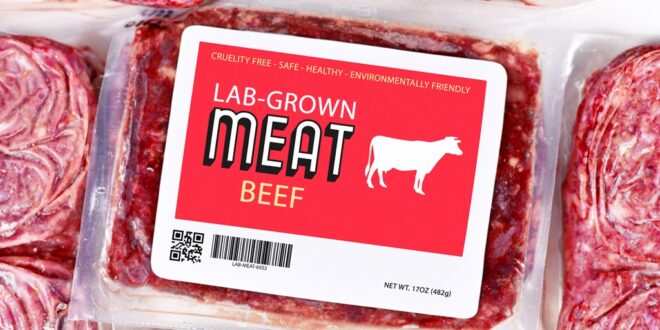EU legislators dispute just how to identify lab-grown meat as specialists emphasize the significance of a clear and consumer-friendly name
A leading United States professional, Teacher William K. Hallman from Rutgers College, has actually evaluated in on the argument, suggesting that discovering the best name is vital to promote trust fund and understanding amongst customers.
What remains in a name?
The obstacle of calling lab-grown meat isn’t simply an advertising and marketing workout– it has to do with forming assumptions. Hallman stresses that an item’s name structures just how customers consider it, clarifying:
“ Advertising business invest countless bucks determining what to call their items due to the fact that they understand names hold indicating for individuals. Every little thing customers learn more about an item is affected by its name”
His research study recognized over 85 prospective names for lab-grown meat, mirroring the vast range of viewpoints on the arising foods.
- Unfavorable terms like lab-grown and artificial meat are viewed as unappetising and repulsive.
- Favorable terms such as tidy meat or slaughter-free meat emphasize its honest and ecological advantages.
- Neutral terms like cell-based or cell-cultured objective to strike an equilibrium in between precision and approval.
Policy and public understanding
Hallman firmly insists that uniformity is essential, prompting European legislators to take on a solitary, honest, and non-misleading name that fulfills both regulative criteria and public assumptions. This is specifically crucial offered the fragmented point of views throughout the continent:
- Italy and Hungary have actually outlawed the manufacturing and advertising of cell-based meat, rejecting it as abnormal.
- Various other EU countries continue to be unsure, with conventional intrigues revealing scepticism.
Hallman notes that conventional resistance stems, partly, from “food neophobia”– a concern of strange foods. Nevertheless, he says that very early fostering of a clear and regular term can assist get over these concerns, leading the way for customer experience.
A Name that benefits all
For Hallman, terms like cell-based or cell-cultured strike the best equilibrium. These names highlight the cutting-edge manufacturing procedure while staying clear of the preconception connected with terms like phony meat.
He additionally emphasizes the significance of openness: customers must understand that cell-based meat stems from pet cells, specifically those with allergic reactions, as they might respond likewise to the cultured variation of standard meat.
” The actual considerable distinction is the procedure [to produce it],” he describes.
The risks for Europe
While lab-grown meat very closely duplicates conventional meat in preference, structure, and nourishment, its trip right into European markets is stuffed with difficulties. Hallman says that the argument over terms isn’t practically semiotics– it has to do with equipping customers with educated options.
” Inevitably, what customers respect is whether the item benefits what they desire it to help. Customer sovereignty issues,” he claims.
As EU legislators purposeful, the future of lab-grown meat might depend upon one stealthily basic choice: discovering a name that reverberates with regulatory authorities, manufacturers, and, most significantly, individuals that will certainly consume it.
The roadway to customer approval of lab-grown meat is long, yet selecting the best terms is an essential primary step. Whether it’s classified cell-based or something completely brand-new, the name needs to personify precision, openness, and attract assist this cutting-edge item take its location at the European table.
 Costa News Spain Breaking News | English News in Spain.
Costa News Spain Breaking News | English News in Spain.





